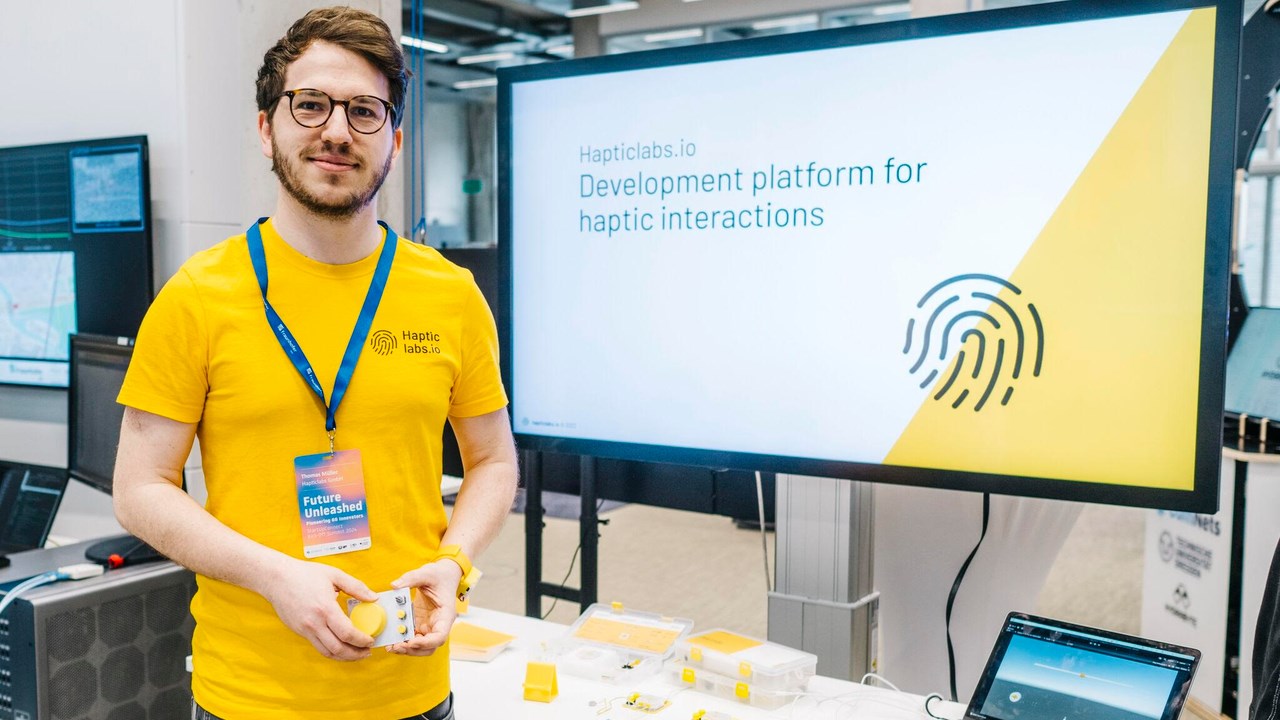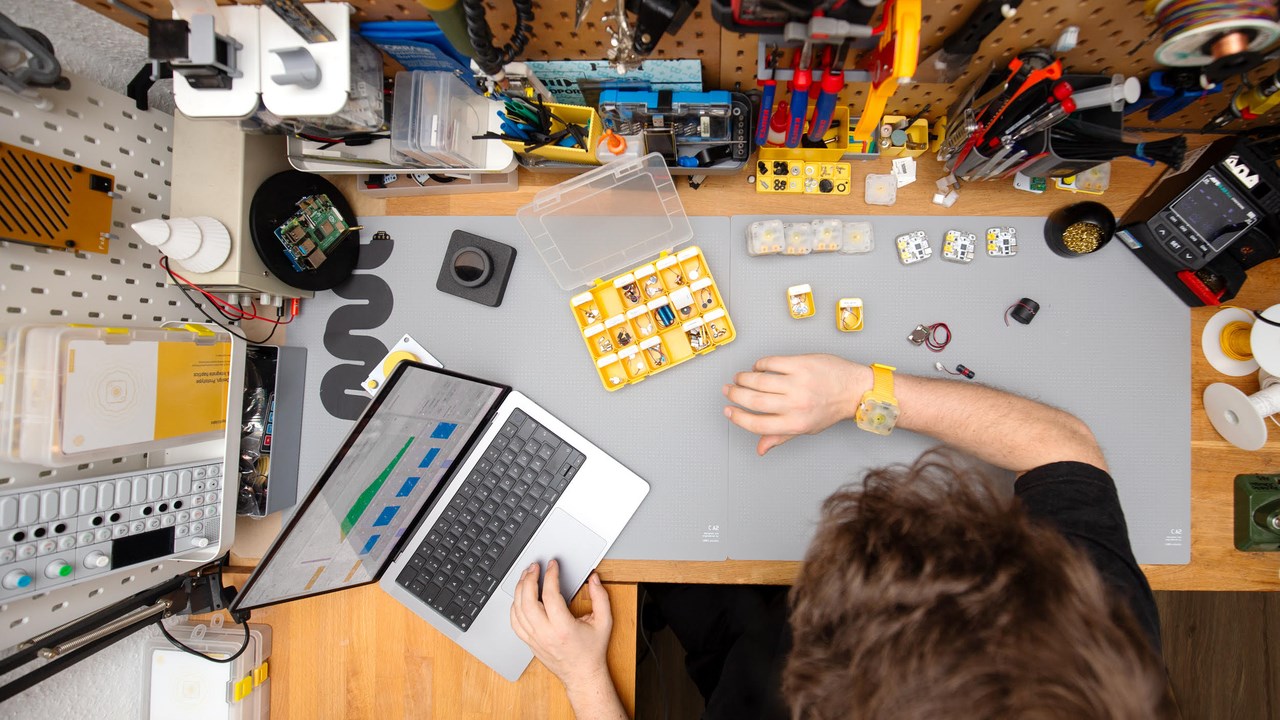ABOUT Thomas Müller
Age: 32 years old.
Originally from: Villingen-Schwenningen, Germany.
Lives in: Dresden, Germany.
Family: a sister in Berlin.
Education: Master’s programme in Advanced Product Design, Umeå Institute of Design, graduated in 2020.
Job: Founder and CEO of award-winning Hapticlabs, a startup design company.
Hobbies: “Tinkering”, 3D-printing, playing guitar and electronic music.
Umeå in 3 words: Isolated, cozy and creative.
Myself in 3 words: Curios, ambitious and driven.
What I’ll be doing in 10 years: Less business and more design.



